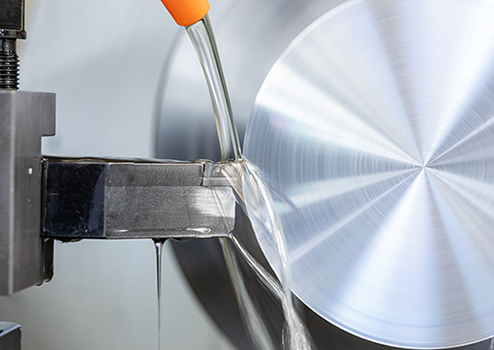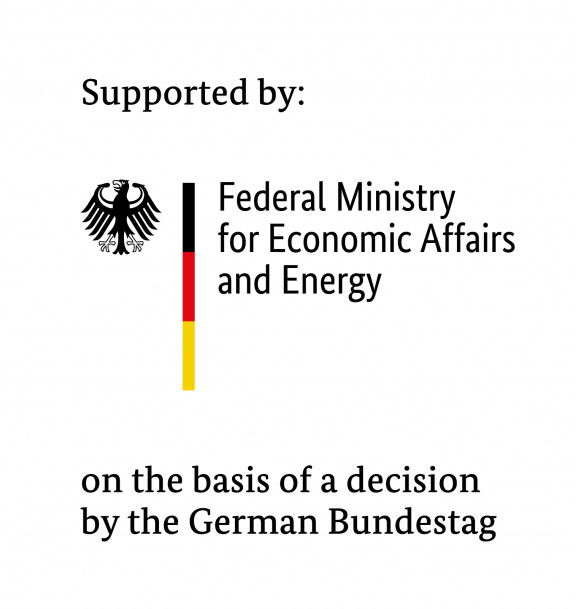Biopolymers for high-performance fluids

Water-based fluids – previously limited in their application
The use of conventional mineral oil-based lubricants is becoming increasingly problematic from an environmental perspective: around 30-50% of the lubricants sold worldwide end up in the environment as a result of leaks, total loss applications or improper disposal. Due to their chemical composition, these fluids require comprehensive, expensive measures to protect people and nature. Water represents a promising alternative in this context: it is sustainable, cost-effective and environmentally friendly. Initial applications of water-based lubricants already exist, particularly in the field of cooling lubricants. However, their widespread use has so far failed due to physical and tribological limitations. Water-based fluids have comparatively low viscosity and lubricating film load-bearing capacity, are susceptible to corrosion, and promote microbiological growth. To compensate for these challenges, large quantities of additives are currently required. This, in turn, limits their sustainability and environmental friendliness.
Biopolymers for high-performance, water-based lubricants without glycols
The overall goal of the project is to develop a high-performance, water-based lubricant with a water content of over 50% that completely dispenses with mineral oil-based components and glycols. In the future, the lubricant systems will not be limited to cooling lubricants, but will also be suitable for use in more demanding applications such as hydraulic and transmission systems. The desired formulation should have a high level of lubricating film load-bearing capacity while compensating for the tribological deficits of water through the use of tailor-made bio-based polymer additives. Particular attention is being paid to reducing the need for additives through the intrinsically surface-active and friction-reducing properties of the biopolymers used. The aim is to establish a new class of sustainable lubricants through innovative material development that are both ecologically and functionally convincing.
Tailored modification of biopolymers optimizes the tribological properties of fluids
As part of this project, we at Fraunhofer IVV are focusing on two different classes of natural polymers, which we are specifically modifying to improve their tribological properties and incorporating into lubricant formulations. The aim is to achieve both a high lubricating film load-bearing capacity and a pronounced material affinity through tailor-made molecular properties.
In order to evaluate the functionality of these newly developed biopolymers under real-world conditions, they are then integrated into practical lubricant systems. In doing so, we specifically combine existing additive systems, both conventional and bio-based, in order to identify synergies and ensure compatibility within complex formulations. The resulting fluids are then tested in application-specific tests by industry partners - especially lubricant manufacturers - to assess their functionality in real-world scenarios. The aim is to comprehensively evaluate their suitability for use, taking into account both performance and ecological and economic aspects.
In the long term, it is expected that the findings will not only provide an improved lubricant formulation for hydraulic applications, but also give new impetus to the use of water-based lubricants in gear fluids and cooling lubricants. The project is thus making an important contribution to the transformation of the lubricant industry towards more sustainable, environmentally friendly and at the same time high-performance products.
| Project term: | 2025 to 2027 |
| Project management / project funding: | DLR Projektträger (via Research Association for Drive Technology FVA), Federal Ministry of Economic Affairs and Energy BMWE, Cornet / IGF international |
| Official title: | Improvement of tribological performance of natural polymers for use of water-based high-performance fluids |
| Funding code: | 01IF00413C |
| Related projects, already completed: |
 Fraunhofer Institute for Process Engineering and Packaging IVV
Fraunhofer Institute for Process Engineering and Packaging IVV

